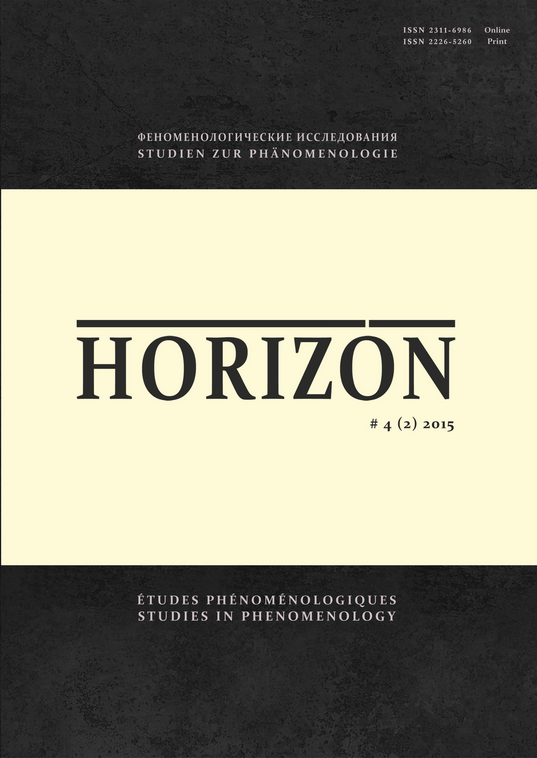DAS AUßER-SICH-SEIN BEI SCHELLING UND HEIDEGGER
«BEING OUTSIDE-ITSELF» IN SCHELLING AND HEIDEGGER
Author(s): Andrei PatkulSubject(s): German Idealism, Phenomenology, Hermeneutics
Published by: Издательство Санкт-Петербургского государственного университета
Keywords: Being outside-itself; ecstasy; intellectual intuition; wondering; Dasein; temporality; exis¬tence; metaphysics; German idealism; phenomenology
Summary/Abstract: The author of the article framed the question of the possible relevance of the treatment of the Schelling’sphilosophy in the context of a phenomenological one. Thereby, he points its problematic character,referencing Husserl’s treatment of German idealism after Kant (including the thought of Schelling)as the romantic idealism. At the same time, he also states the influence of Schelling on the few phenomenologistswho made their careers after Husserl. The article’s author reviews the concept of the«being outside-itself» or «ecstasy» in Schelling and Heidegger (as one of the phenomenologists) forthe further concretization of the theme. The ecstasy in Schelling is the new name for the idealisticintellectual intuition, by which a singular subject loses its own position as subject and thereby getsto the position of the absolute subject. The absolute subject is one which cannot be an object already.Schelling identifies the ecstasy understood in this way with the wondering as philosophical initiationin Ancient Greece. Such ecstasy leads to unknowing knowledge in Schelling’s words. The conceptof being outside-itself means the structural element of being of human Dasein, i.e. of temporality inHeidegger. This philosopher thinks that a human being is always already outside itself ontologically,before any intuition both sensual and intellectual. The human subject is not closed in on itself, forthen it has to transcend from its immanence to the outside. It is always outside itself, it is ecstatic. Inits ecstasies, it is always in the world, instead of being inside the world and other people. Heideggerbases his critique of the traditional metaphysics of the subject on such understanding of the ontologicalstructure of Dasein, i.e. of the true «subject». In conclusion, the article’s author states that the approachesto the problem of being outside-itself of both mentioned philosophers are in principle, quitedifferent. Schelling tries to rehabilitate the subjectivity by the reduction of the singular subject to theabsolute one. On the contrary, the finitude of human Dasein is the necessary condition of its being inHeidegger. The ecstasy is interiorization in Schelling, but it is exteriorization, which has been alwaysalready realized, in Heidegger. However, the author of the article also pinpoints a certain isomorphismof the treatments of ecstasy in both thinkers. In the different ways they attempt to overcome the crisisof the understanding of the subject as closed in itself, create the conditions of this isomorphism.
Journal: Horizon. Феноменологические исследования
- Issue Year: 4/2015
- Issue No: 2
- Page Range: 121-138
- Page Count: 18
- Language: German

